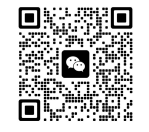
Technological Innovation And Application Field Expansion In Clean Workshops
Technological Innovation And Application Field Expansion In Clean Workshops
Against The Backdrop Of Increasing Demand For High-end Manufacturing And Scientific Research, Clean Workshops, As A Key Production Environment, Are Upgrading Through Technological Innovation And Continuously Expanding Their Application Areas, Injecting New Momentum Into The High-quality Development Of Multiple Industries.
Technological Innovation: Intelligence And Material Equipment Innovation Dual Wheel Drive
Intelligent And Digital Technologies Are Deeply Integrated Into Clean Workshops. The Integration Of The Internet Of Things, Big Data, And Artificial Intelligence Technology Has Enabled Clean Workshops To Have Real-time And Accurate Monitoring And Intelligent Control Capabilities. Through Sensors Scattered Throughout The Workshop, Key Parameters Such As Temperature, Humidity, Pressure Difference, And Particulate Matter Concentration Can Be Collected In Real Time. AI Algorithms Intelligently Adjust The Operating Status Of Equipment Based On Data Changes, Which Not Only Greatly Improves Production Efficiency But Also Ensures The Stability Of Product Quality. For Example, Digital Twin Technology Can Simulate The Airflow Path And Energy Consumption Of Clean Workshops During The Design Phase, Optimize The Design Scheme, And Shorten The Debugging Cycle By Nearly 30%; IoT And AI Monitoring Systems Enable Real-time Particle Monitoring, Dynamically Adjusting Temperature, Humidity, And Pressure Differentials, Reducing Energy Consumption By About 20% Compared To Traditional Methods. The Innovation In Materials And Equipment Technology Is Equally Remarkable. In Terms Of Materials, Antibacterial Materials Are Widely Used, Such As Photocatalytic Coatings (TiO ₂) Which Can Effectively Decompose Microorganisms And Reduce The Growth Of Bacteria And Fungi In The Workshop; At The Device Level, Robots And Automation Equipment Are Gradually Replacing Manual Operations. They Not Only Operate Accurately And Efficiently, But Also Avoid Pollution Sources Caused By Personnel Activities, Improving The Flexibility And Production Efficiency Of The Production Line. At The Same Time, Air Purification Technology Continues To Upgrade, And The Application Of High-efficiency Particulate Air (HEPA) Filters And Ultra High Efficiency Particulate Air (ULPA) Filters Enables Cleanrooms To Achieve Higher Standards Of Air Quality Control, Meeting The Stringent Requirements For Cleanliness In High-end Manufacturing Fields Such As Semiconductors.
Application Field Expansion: Extending From Traditional Industries To Emerging Scenarios
The Application Field Of Clean Workshops Is Constantly Breaking Through Boundaries. In Traditional Advantageous Fields, The Demand For Clean Workshops In The Semiconductor Industry Continues To Rise. Chip Manufacturing Requires Control Of Micron Level Particle Pollution, With Cleanliness Levels Often Reaching ISO Class 1-5. In 2023, This Field Accounted For 35% Of The Total Demand For Cleanrooms. With Local Wafer Manufacturers Such As SMIC And JA Solar Actively Building Factories And Expanding Production, The Market Size Of Electronic Cleanrooms Continues To Expand. The Biopharmaceutical Industry Also Relies On Clean Environments, And The Production Of Drugs And Vaccines Requires The Suppression Of Microbial Contamination. Operating Rooms And Laboratories Also Have Extremely High Requirements For Cleanliness, With A Demand Share Of 25% In 2023. The Upgrade Of The New GMP Standards Has Further Driven Market Demand Growth.
In Emerging Fields, The New Energy Industry Has Become A New Growth Point For Clean Workshop Applications.
. The Processing Of High-purity Materials Such As Photovoltaics And Lithium Batteries Has Strict Requirements For The Production Environment, Requiring Clean Workshops To Ensure Product Quality, And The Related Demand Is Showing A Rapid Growth Trend. In Addition, Fields Such As Aerospace, Optical Components, And Research Laboratories Are Increasingly Reliant On Clean Environments. Emerging Application Scenarios Continue To Emerge, Such As The Production Of Sodium Ion Battery Separators And Space Breeding Laboratories. 47% Of Newly Registered Related Patents In 2024-2025 Involve Cross Industry Application Innovation. These Innovative Applications Not Only Expand The Market Space Of Clean Workshops, But Also Drive Continuous Technological Progress In The Industry To Meet The Needs Of More Complex Scenarios.
-
2025/08/05
Analysis Of The Prospects Of Clean Workshops
In The Current Era Of Rapid Technological Development And Continuous Industrial Upgrading, Clean Workshops, As A Key Infrastructure For Many High-end Industries, Have Attracted Much Attention For Their Development Prospects. From Market Expansion To Technological Innovation Breakthroughs, From Policy Guidance Support To Application Field Expansion, Clean Workshops Are Embracing Comprehensive Development Opportunities. At The Same Time, The Impact Of Clean Workshops On The Environment Has Become An Important Issue That Cannot Be Ignored In The Development Of The Industry. -
2025/08/05
Detailed Explanation Of Classification Of Cleanroom Levels
The Classification Of Levels In Clean Workshops Is Key To Ensuring That The Production Environment Of Various Industries Meets The Requirements. The Classification Criteria Are Mainly Based On The Concentration Of Suspended Particles In The Air, And Different Levels Are Applicable To Different Production Scenarios And Product Manufacturing. At Present, The Commonly Used International Standard Is ISO 14644-1, And There Is Also A Corresponding National Standard GB/T 25915.1-2010 In China. These Standards Classify Clean Workshops Into Multiple Levels From Low To High, Providing Precise Adaptation To The Production Needs Of Different Industries. -
2025/08/05
Wide Industry Applications Of Clean Workshops
Cleanrooms Play An Indispensable Role In Many Industries Due To Their Strict Control Over The Environment, Becoming A Key Infrastructure For Ensuring Product Quality And Production Safety.


 WhatsApp
WhatsApp
